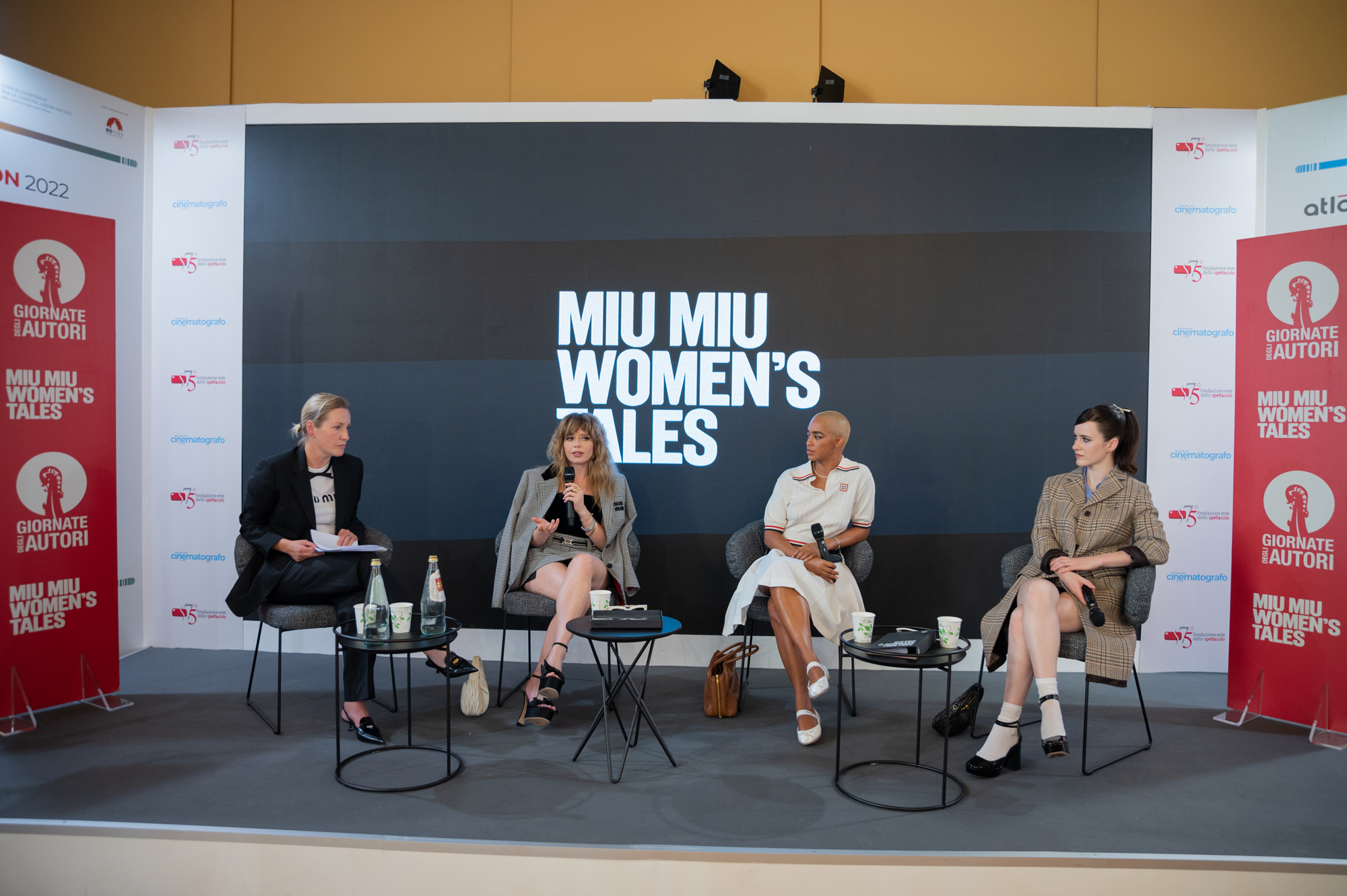The Miu Miu Women’s Tales Conversations get underway with the first two talks, featuring Janicza Bravo, Carla Simón, Rachel Brosnahan, Kelsey Lu, and Natasha Lyonne
The first of two days of events devoted to the Miu Miu Women’s Tales Conversations saw guest artists Rachel Brosnahan, Kelsey Lu, and Natasha Lyonne take the stage, as well as women filmmakers Janicza Bravo and Carla Simón, who directed the short films #23 and #24 joining the collection. Five voices who expressed their own views regarding the many creative endeavors they engage in – music, writing, producing, directing, and acting – and their position in a world that gradually (maybe a step forward, then a step back) appears to be offering more dignity and opportunity to genders other than male alone.
As to gender parity, Penny Martin, editor-in-chief di Gentlewoman, back at Giornate in her customary role as moderator, was quick to point out the dearth of titles directed by women filmmakers at Venice this year, a situation too complex to reduce to the numbers alone, but one that clearly attests to the fact that the core issues concerning gender parity and equality are far from being resolved.
The term “diversity”, especially in the second talk of the day, was interpreted in two different ways. First of all, as anticipated, it referred to the diversification of roles and skills that led an actress like Brosnahan to range from film (such as the film screening out of competition at Venice, Dead for a Dollar by Walter Hill) to television and the online platforms (as in the shining example of the series The Marvelous Mrs. Maisel). Or a musician like Lu, who changed into an actress for the director Bravo, in the short House Comes With a Bird (and not just a one-off, according to the singer, eying a horror film), while an actress, writer and producer like Lyonne (also appearing in Bravo’s short #23 and in the series Poker Face) has also brought her varied talents to bear on one of her greatest hits, the series Russian Doll, which she created (with Leslye Headland and Amy Poehler), wrote, and starred in, as well as directing a number of episodes.
Of course, diversity is also about gender issues, and from many different points of view. Before getting down to the problem of gender disparity, Brosnahan stressed how unusual the atmosphere is in an environment made of mostly women. The actress of the series Manhattan and House of Cards spoke of a “courteous” atmosphere, in which one is not oppressed by the expectation – by the necessity – of adhering to conventions. That doesn’t mean that projects managed by women are better; they are simply different and allow actors to experiment with new ways of being on set.
For the three speakers in today’s second Conversation, the goal is that women’s involvement in audiovisual projects will become so commonplace that no one will even point it out. It happened during the fourth season of Russian Doll, when Lyonne realized that the number of women working on the show had swelled to become an absolute majority. And that wasn’t planned or premeditated. It simply happened.
If women boost their presence in all aspects of film production, it would give them more time to tell their stories and have their stories told. Film would become an open space for the nuances and complexity of the female condition to stand out, not the stereotypes and clichés.


